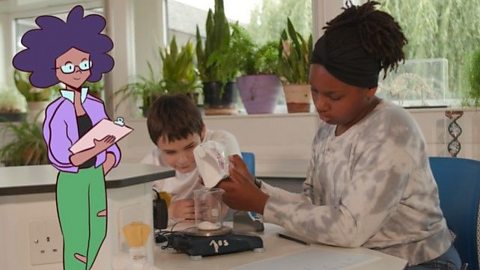Key points
- Scientific studies can be biased and it is important to recognise when this is the case.
- Try to avoid bias when following the scientific method and drawing conclusions in investigations.
- Scientists review each other's conclusions from new scientific research. They also check the method used and the accuracy of the results. This is known as peer review.
Video
Watch this video about identifying and avoiding bias in science.
While you are watching, look out for the common clues that show bias could be present in the information
Presenter 1: We're going to look at why objectivity in science is important and how you can spot and avoid bias in science.
Presenter 2: In everyday language, "bias" describes a preference for something. For example, a favourite colour or an idea.
Presenter 1: But in science, bias can also mean different things. Biased research has been affected by the personal beliefs or views of researchers.
Presenter 2: Or there are errors in measurement.
Presenter 1: It can also occur when conclusions from experiments are influenced. We are going to look at an experiment with cress seeds, where all of the seeds are the same type.
Student 1: You've got to get the folded tissue into your box.
Student 2: Just going to drizzle some of the water on top of the paper.
Student 3: What we're going to do with these is put the cress in the boxes, but we're going to each, every day, expose them to a different amount sunlight.
Presenter 2: Here, we asked students to change one variable, the period of time the cress is in the light each day, to see how it impacts the rate of growth of cress plants. We will keep the amount of water and the temperature the same.
Presenter 1: So, time in the light is the independent variable, growth is the dependent variable and volume of water and temperature are the controlled variables?
Presenter 2: Correct!
Student 1: Even if I only have four hours, my dad is a gardener, so he probably has some good tips.
Presenter 1: So, where do you think the bias might come in?
Presenter 2: Because this student already thinks her cress will grow the fastest, do you think she might be biased in this experiment?
Presenter 1: Each student took their seeds out from under a darkened box for a different length of time. So, it looks like the student who, in her opinion had an expert dad who helped her seeds grow fastest, is correct.
Presenter 2: But then, her brother spotted that their mum kept taking the seeds out from under the box and leaving them on the window sill.
Presenter 1: So, in fact, her seeds had much more light than all the other experiments.
Student 3: How…? What? How on earth did that happen?
Student 1: I had four hours of sunlight and I watered it every day and it looks beautiful. What about you?
Student 2: I did the exact same thing, but with six hours.
Student 3: Exact same thing, but with one hour.
Presenter 2: Her results were flawed because one of the students' seeds saw much more sunlight than they should have done. The test wasn't valid. One student didn't control the amount of time the seeds were in the light. Hers got much more light, so their seeds grew the fastest.
Presenter 1: So, here we have seen the different ways we may fail to work objectively in the lab. Our own opinions or a poorly conducted experiment can result in biased results.
Presenter 2: Take care to plan and carry out experiments properly, and recognise when our opinions might affect the results. These both help to make sure we work objectively.
Presenter 1: There can be bias in the method, the measurement of results or the conclusions. Taking care to avoid these will reduce bias and ensure we work objectively and scientifically.
Bias in data
biasA preference for or against an idea or data being affected by errors in method or equipment. is a word often used to describe a point of view. This view might not take into account all available evidence.
Results from science investigations can also be biased if there is something wrong with the equipment or method.
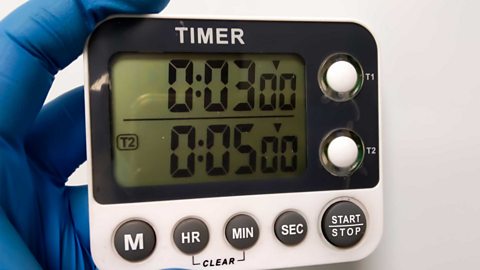
Scientific measurements taken can be affected by two types of error that may make results biased:
random errorSomething that causes an unexpected difference between a measurement and the true value.: This can alter the spread of data and cause outliersResults that are very different from the others.. One reason could be that the person doing the experiment uses the equipment or takes the reading incorrectly. Another reason could be a variable that couldn’t be controlled, like a temperature drop in the room.
systematic errorSomething that causes results to differ by the same amount each time. : This can make measurements less accurateResults are accurate if they are close to the true value.. It may happen if equipment is not used properly and can cause all results to differ by the same amount, eg timing using a stopwatch that hasn't started from zero.

As well as spotting bias in primary dataData that has been collected from the original source for a specific purpose., when drawing a conclusion it is important to be able to spot bias in secondary dataData that has already been collected through primary sources and made available for others to use it.. Checking the method used and checking the range of data can help to identify bias.
As well as the range of data, what else should be checked to help to spot bias?
The method should be checked as well as the range of data.
Bias in language
biased languageWords and phrases that show a preference towards something, used to highlight a point of view. can be used to highlight a point of view and persuade someone to agree with it.
The person or organisation sharing the information might be trying to persuade people that their view is correct, but may not present all the evidence or information that contradicts their viewpoint.
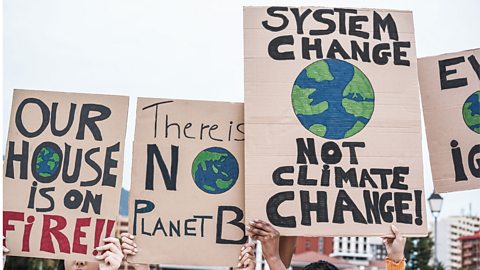
For example, some people deny that human activity speeds up climate changeA change in global or regional climate patterns. . However, the vast majority of climate scientistsPeople who study how the Earth’s climate is changing. agree that the evidence supports the understanding that burning fossil fuels is directly linked to climate change.

True or false?
An organisation sharing information that takes into account all reliable evidence is likely to be biased.
False. If all available reliable evidence has been taken into account, then the information will not be biased.
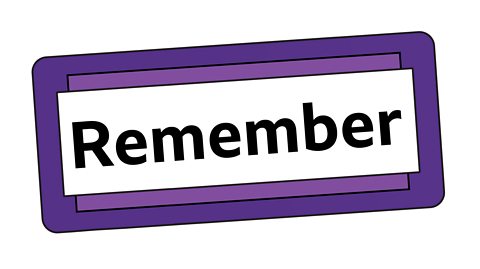
Wherever information is gathered from to help inform opinions, it's important to consider the words being used and understand if the information is valid.
Peer review
Scientists across the world form a scientific community. For scientists, their peersPeople of the same ability. are other scientists.
Conclusions from new scientific research are reviewed or checked by other scientists. They check the method used, the accuracy of the results and the conclusions drawn.

Scientists check that the research is validAn experiment is valid if it measures what it is supposed to be measuring. and originalThe first version, for example new results or research.. In doing this, scientists help to make sure that bias has been avoided. This helps other scientists and non-scientists across the world have confidence in what they are reading or are being told about.

Who are scientists' peers?
Other scientists working in the same area of science.
Did you know?
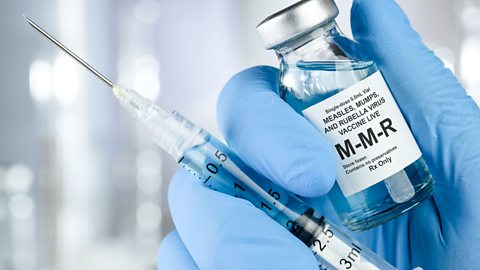
In 1998, a medical study suggested a link between the MMRInitials for the diseases measles, mumps and rubella. vaccineA substance that helps the body to become resistant to a disease. and autismA developmental disability which affects how a person interacts and communicates.. As a result of this, MMR vaccination rates in the UK dropped. The study has now been completely discredited.
The 1998 research didn't take into account all available evidence and information. For example, over the time period that the study was done, it didn’t consider population increase. The results from this study misled a lot of people.

Test your knowledge
Quiz - Bias in science
Play the Atomic Labs game! gamePlay the Atomic Labs game!
Try out practical experiments in this KS3 science game.

More on Working scientifically
Find out more by working through a topic
- count1 of 11
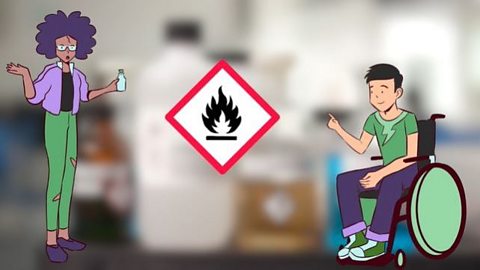
- count2 of 11

- count3 of 11
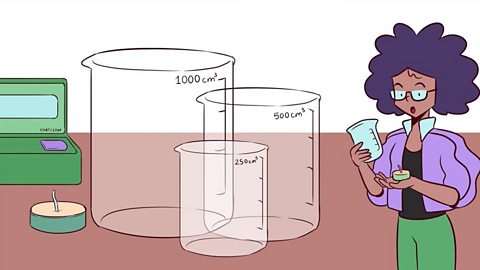
- count4 of 11
